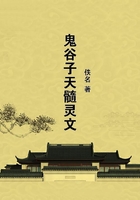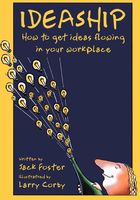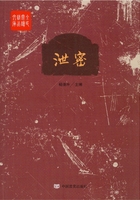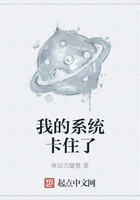At last, when poetry had fallen into such utter decay that Mr. Hayley was thought a great poet, it began to appear that the excess of the evil was about to work the cure. Men became tired of an insipid conformity to a standard which derived no authority from nature or reason. A shallow criticism had taught them to ascribe a superstitious value to the spurious correctness of poetasters. A deeper criticism brought them back to the true correctness of the first great masters. The eternal laws of poetry regained their power, and the temporary fashions which had superseded those laws went after the wig of Lovelace and the hoop of Clarissa.
It was in a cold and barren season that the seeds of that rich harvest which we have reaped were first sown. While poetry was every year becoming more feeble and more mechanical, while the monotonous versification which Pope had introduced, no longer redeemed by his brilliant wit and his compactness of expression, palled on the ear of the public, the great works of the old masters were every day attracting more and more of the admiration which they deserved. The plays of Shakspeare were better acted, better edited, and better known than they had ever been. Our fine ancient ballads were again read with pleasure, and it became a fashion to imitate them. Many of the imitations were altogether contemptible. But they showed that men had at least begun to admire the excellence which they could not rival. A literary revolution was evidently at hand. There was a ferment in the minds of men, a vague craving for something new, a disposition to hail with delight anything which might at first sight wear the appearance of originality. A reforming age is always fertile of impostors. The same excited state of public feeling which produced the great separation from the see of Rome produced also the excesses of the Anabaptists. The same stir in the public mind of Europe which overthrew the abuses of the old French Government, produced the Jacobins and Theophilanthropists.
Macpherson and Della Crusca were to the true reformers of English poetry what Knipperdoling was to Luther, or Clootz to Turgot. The success of Chatterton's forgeries and of the far more contemptible forgeries of Ireland showed that people had begun to love the old poetry well, though not wisely. The public was never more disposed to believe stories without evidence, and to admire books without merit. Anything which could break the dull monotony of the correct school was acceptable.
The forerunner of the great restoration of our literature was Cowper. His literary career began and ended at nearly the same time with that of Alfieri. A comparison between Alfieri and Cowper may, at first sight, appear as strange as that which a loyal Presbyterian minister is said to have made in 1745 between George the Second and Enoch. It may seem that the gentle, shy, melancholy Calvinist, whose spirit had been broken by fagging at school, who had not courage to earn a livelihood by reading the titles of bills in the House of Lords, and whose favourite associates were a blind old lady and an evangelical divine, could have nothing in common with the haughty, ardent, and voluptuous nobleman, the horse-jockey, the libertine, who fought Lord Ligonier in Hyde Park, and robbed the Pretender of his queen. But though the private lives of these remarkable men present scarcely any points of resemblance, their literary lives bear a close analogy to each other. They both found poetry in its lowest state of degradation, feeble, artificial, and altogether nerveless.
They both possessed precisely the talents which fitted them for the task of raising it from that deep abasement. They cannot, in strictness, be called great poets. They had not in any very high degree the creative power, "The vision and the faculty divine": but they had great vigour of thought, great warmth of feeling, and what, in their circumstances, was above all things important, a manliness of taste which approached to roughness. They did not deal in mechanical versification and conventional phrases. They wrote concerning things the thought of which set their hearts on fire; and thus what they wrote, even when it wanted every other grace, had that inimitable grace which sincerity and strong passion impart to the rudest and most homely compositions. Each of them sought for inspiration in a noble and affecting subject, fertile of images which had not yet been hackneyed. Liberty was the muse of Alfieri, Religion was the muse of Cowper. The same truth is found in their lighter pieces. They were not among those who deprecated the severity, or deplored the absence, of an unreal mistress in melodious commonplaces. Instead of raving about imaginary Chloes and Sylvias, Cowper wrote of Mrs. Unwin's knitting-needles. The only love-verses of Alfieri were addressed to one whom he truly and passionately loved. "Tutte le rime amorose che seguono," says he, "tutte sono per essa, e ben sue, e di lei solamente; poiche mai d'altra donna per certo con cantero."
These great men were not free from affectation. But their affectation was directly opposed to the affectation which generally prevailed. Each of them expressed, in strong and bitter language, the contempt which he felt for the effeminate poetasters who were in fashion both in England and in Italy.
Cowper complains that "Manner is all in all, whate'er is writ, The substitute for genius, taste, and wit."
He praised Pope; yet he regretted that Pope had "Made poetry a mere mechanic art, And every warbler had his tune by heart."
Alfieri speaks with similar scorn of the tragedies of his predecessors. "Mi cadevano dalle mani per la languidezza, trivialita e prolissita dei modi e dei verso, senza parlare poi della snervatezza dei pensieri. Or perche mai questa nostra divina lingua, si maschia anco, ed energica, e feroce, in bocca di Dante, dovra ella farsi casi sbiadata ed eunuca nel dialogo tragico?"















